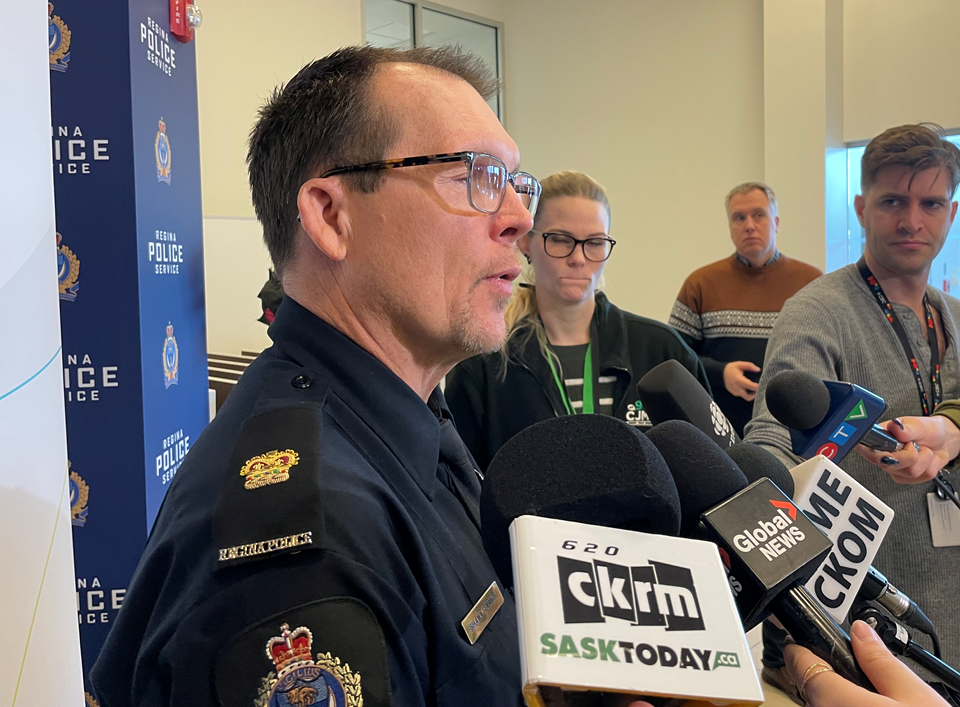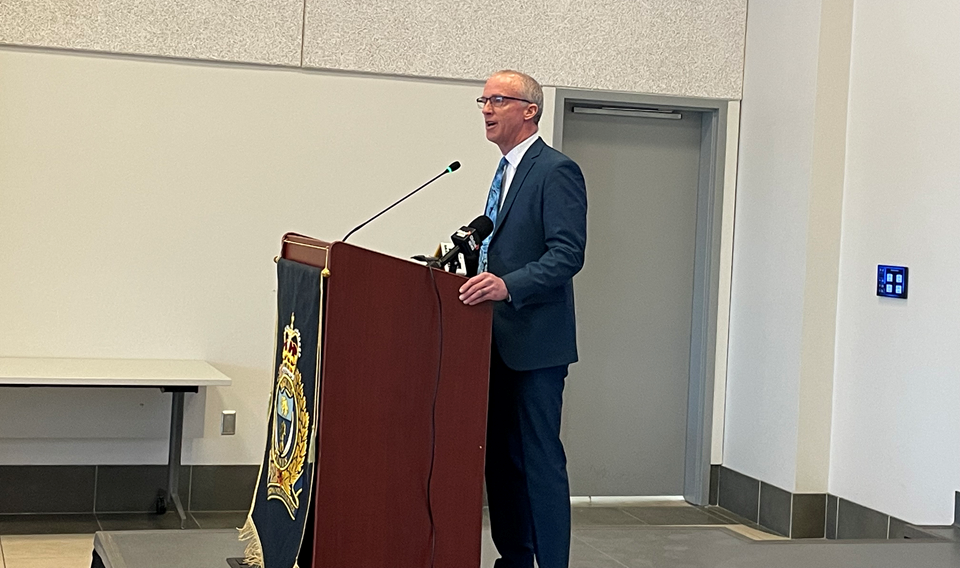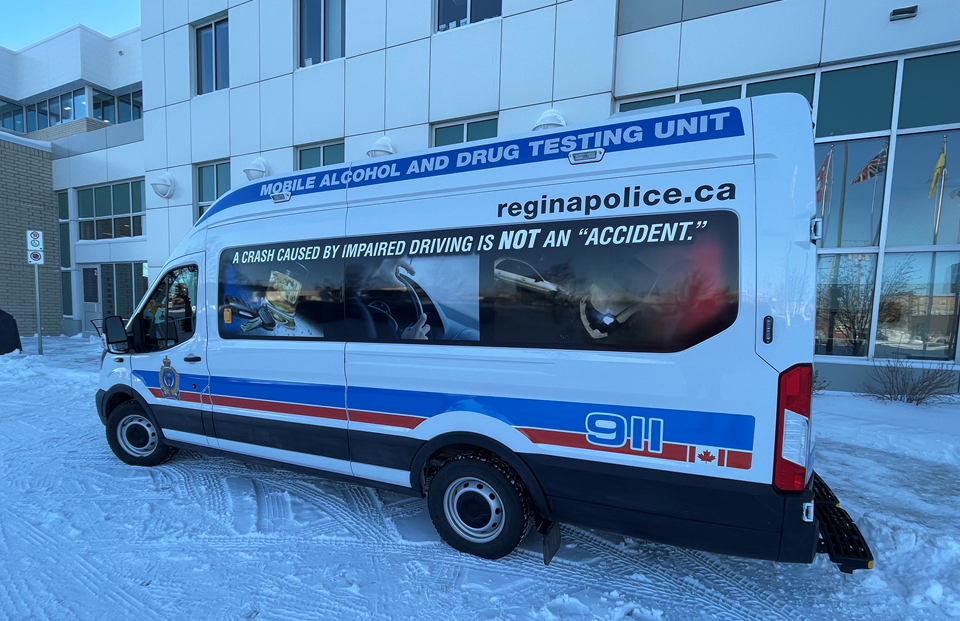REGINA - The Regina Police Service (RPS), in partnership with SGI has rolled out new vehicles that can test impaired drivers.
Insp. Shawn Frederick with the RPS explained how the new Mobile Testing Unit (MTU) functions.

"So, it'll be much like many of the tests that you'll see right now when we do a project. But right now, if there is suspicion of drug use or alcohol use, we can do those tests right there in the mobile testing unit rather than bringing them downstairs to our detention area where we'd have to use an intoxilyzer or one of the drug devices like a SoToxa or a Draeger. We have that ability right there in the unit."
The new testing units are seen as a way to ensure police can detect drug-impaired drivers sooner.
Frederick mentioned he thinks "drug-impaired driving right now is becoming more prevalent than ever before, and I think the better we get at detecting [the more we can stop drug impaired drivers faster]. I think we'll just have the effect where statistics are going to increase, and I think a lot of people get behind the wheel [and] they may not use alcohol, but they think that drugs can't be detected, so we want to change that mindset."
Each MTU would ideally have one member trained in the RPS drug recognition expertise, which has 10 to 12 members, according to Frederick. He pointed out all the members will always be available on call whether they are out in a van or somewhere else.
One of the biggest benefits of the new MTU is the amount of time it will save police. In the past, police would have to transport impaired drivers to stations to conduct further testing.
Frederick believes it will save the police "at least an hour, maybe more depending on how complicated the impaired driver is. Sometimes it's alcohol and drugs, but for sure, I would say an hour would be a really good estimate [for the amount of time saved]."
Since the RPS deployed the MTU during the past weekend, Frederick said he’s heard "really great feedback from our members. And we're working through a few technical things. But I think that was a great success and [overall] a really good start for us."
The MTU had been in the works for several years but was delayed for various reasons. Like many things, COVID-19 played a part in the delay. Another factor was Amazon had purchased the vehicles the RPS was going to use for the MTU’s.
Frederick called it "frustrating" but noted the police are problem solvers, so they worked through it.
Attending the unveiling of the new MTU was Brad Crassweller, MLA for White City-Qu'appelle.

According to Crassweller, the government of Saskatchewan contributed $25,000 to the MTU. He believes it "will help our officers and help make our community safer and our highways safer."
Not only did the government of Sask. help bring forth the MTU, but SGI also played a role in the new units, funding $25,000 towards it.
Kwei Quaye, vice president of traffic safety services with SGI, talked about the need for the MTU to stop impaired drivers.
"We need police to be able to help us, in this case, get impaired drivers off the road. And without that [help], all the laws that we pass are just meaningless. So it's [a partnership that] I'll call it a symbiotic relationship. Police [are] interested in safety [and] we're interested in safety, and we think by working together we can make the community safe in the area in Saskatchewan."
According to Quaye, SGI reported 29 fatalities last year due to impaired driving, while aorund 1,500 people were injured because of impaired driving.
To combat the number of impaired drivers, SGI has worked with police agencies to invest in 60 enforcement officers. SGI also played a role in establishing Saskatoon’s police's own drug and alcohol testing unit, in which they also invested $25,000.
While the number of impaired driver fatalities has gone down in 2024 from 29, compared to 2008, which had 68 fatalities, Quaye feels the percentage of impaired drivers who have passed on the roads, which sits at 38 per cent, is still too high.
In response to those numbers, Quaye said, "we dream of a day when we'll see [impaired drivers causing deaths on the road to go] down to 5 per cent, and the work that we're doing is something that will move us in that direction." One day, the SGI hopes the percentage of impaired driving deaths can be 0 per cent.




